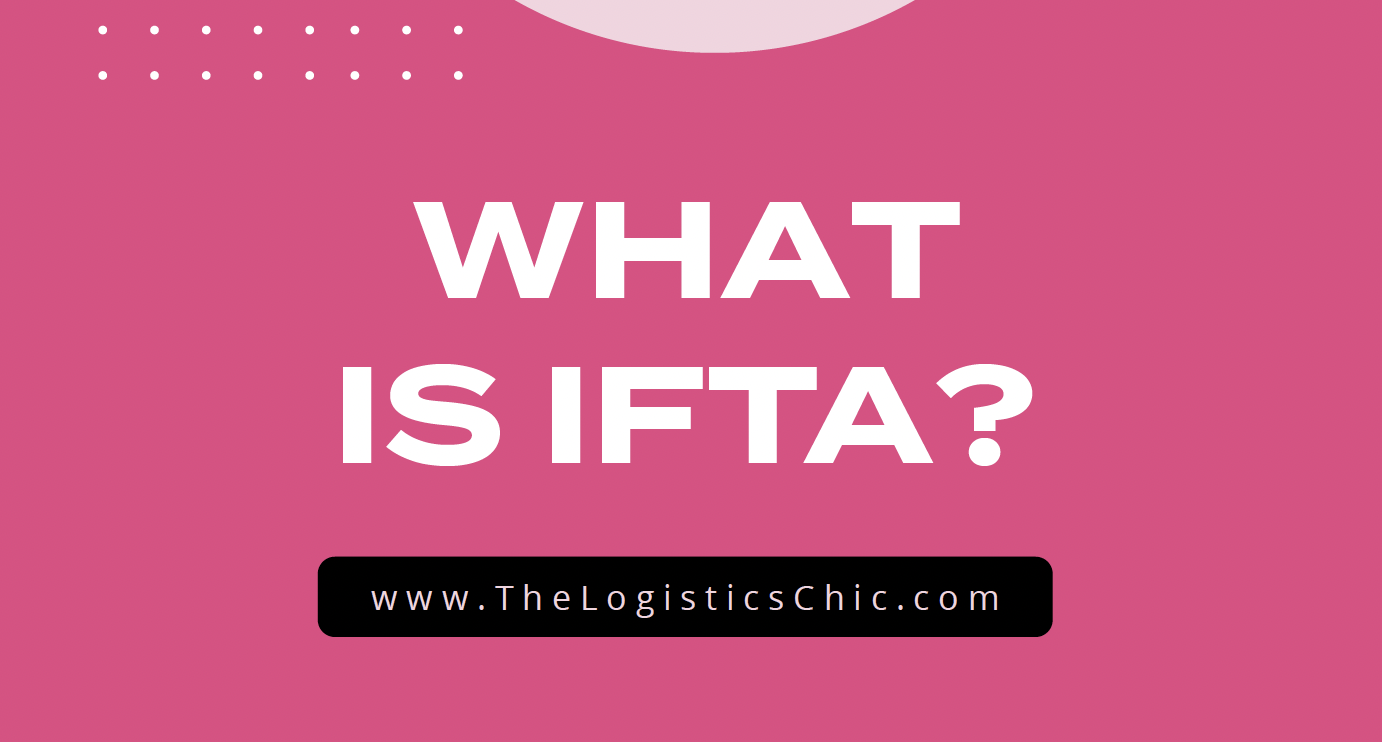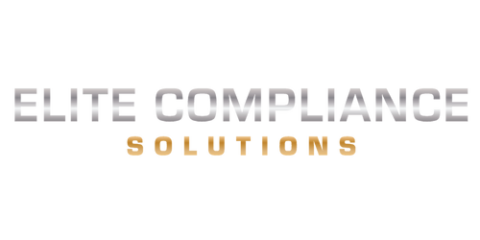One of the best things about a career in the logistics industry is that there is so much to know. Okay, the fact that you get to be your own boss, earn a comfortable living, and enjoy an amazing lifestyle is pretty great too.
But as a lifetime learner, I’m always energized and invigorated by how this career challenges me to keep growing. Every challenge makes me better. Every time I get better, I experience more success. I like that idea a lot.
If you’re thinking about a career in logistics, you shouldn’t let the fact that there is so much to learn scare you off. You don’t need to know it all to be successful. To be honest, I don’t think that anybody does know it all or that anyone ever could.
Learning things you don’t know keeps the job interesting. It’s just an added bonus that every time you learn something new you get better at the job and reap the rewards that come from being better.
The International Fuel Tax Agreement is a perfect example of what I’m talking about. It’s something that motor carriers have to worry about. As a freight broker, you could work your whole career without knowing much about it and still be successful. But you’ll be better at your job if you know what it is and how it affects the deals you put together.
WHAT IS THE INTERNATIONAL FUEL TAX AGREEMENT (IFTA)?
Before the 1980s, a trucker was required to get a fuel permit in every state they drove through. It was a really inefficient process. It burned time and fuel as drivers did what they had to do to get the permits. It created an administrative nightmare for fleets due to different fees, filing periods, and record-keeping requirements.
IFTA was introduced as a way to create an efficient and uniform system for collecting and distributing fuel taxes. It makes sure that the taxes paid at the pump go to the states where trucks log the miles that burn that fuel.
Instead of each driver or each fleet filing their fuel tax reports with each individual jurisdiction, IFTA allows them to maintain logs and file with a centralized authority that redistributes fuel tax revenues to the jurisdictions.
IFTA has made the payment, collection, and distribution of fuel taxes more efficient. That makes the business of shipping freight easier for everybody.
WHO NEEDS TO FILE IFTA FUEL TAXES?
If you found your way to my blog because you’re interested in learning how to become a Freight Broker or Freight Broker Agent, there’s an easy answer to the question of who needs to file with IFTA. In most cases, the motor carriers you work with will need an IFTA license. Their trucks will display IFTA decals. They will file quarterly reports and pay the fuel tax.
There are three things that a fleet needs to consider
to determine if they need an IFTA license:
- Base Jurisdiction
- Interstate Commerce
- Gross Vehicle Weight
Base Jurisdiction
Carriers have to file for an IFTA license if their base of operations is located in a member jurisdiction and their operations take place in two or more member jurisdictions. The 48 contiguous United States and 11 Canadian provinces are
member jurisdictions of IFTA. Only Hawaii, Alaska, and the District of Columbia are exceptions within the U.S. Only the Northwest Territories and Nunavut are excluded from Canadian provinces.
Interstate Commerce
The official definition of a “qualified motor vehicle” under IFTA is “a vehicle built and
used to transport property or people”.
As a freight broker, you’ll be working with companies that transport property from one jurisdiction to another regularly. But even bus lines and charter companies are governed by the agreement.
Gross Vehicle Weight
IFTA doesn’t cover passenger vehicles or cargo vans. To fall under IFTA’s jurisdiction, a vehicle must meet the following standards.
- Vehicles with two axles and a gross vehicle weight above 11,797 kilograms or 26,000 pounds.
- Vehicles of any weight but with three or more axles.
- Vehicles that exceed 11,797 kilograms or 26,000 pounds.
HOW DOES THE FUEL TAX
AGREEMENT (IFTA) WORK?
So, if a motor carrier is:
- based in a member jurisdiction
- engaged in interstate commerce, and
- operating qualified vehicles
They will need to obtain an IFTA license. That means their vehicles will display IFTA decals. It also means that they will be responsible for:
- Tracking Fuel Purchases and Mileage by Jurisdiction
- Reporting to IFTA with Quarterly Filings
- Payment of IFTA Fuel Taxes to Avoid Fines, Fees, and Penalties
Tracking Fuel Purchases and Mileage by Jurisdiction
Drivers and fleet managers have to keep accurate records of where fuel is purchased and consumed. Drivers are the first link in the chain of record keeping that makes the whole IFTA reporting system work smoothly. Drivers may keep records manually by saving receipts and entering information into an IFTA log. Or, drivers can use fleet management software to capture and organize the information for them.
To complete IFTA reports, a fleet needs to have information on:
- Date of Purchase
- Vendor’s Name and Location
- Fuel Type
- Vehicle Plate Number
- Quantity of Fuel Purchased
- Price per Unit
- Driver Name and ID
Reporting to IFTA With Quarterly Filings
Every fleet and Independent Owner-Operator licensed by IFTA has to file quarterly
reports and pay any fuel tax owed.
The quarterly deadlines for filing are:
Quarter 1 = April 30th
Quarter 2 = July 31st
Quarter 3 = October 31st
Quarter 4 = January 31st
Each licensee has to calculate their fuel consumption per jurisdiction to determine the taxes due. That means they have to determine the total miles driven in each state and the amount of fuel tax paid in each state.
Payment of IFTA Fuel Tax to Avoid Fines, Fees, and Penalties
When a fleet knows they’ve had motor vehicles operating in a state or province, the gallons purchased in that state or province, and the fuel use based on mileage—they have everything they need to know their IFTA tax.
Motor carriers need to report by the deadline. Even if the fleet is dormant for the entire quarter, they still have to file an IFTA tax report. Fleets that fail to file with IFTA have to pay a penalty on delinquent fuel taxes, later returns, and underpayments.
Jurisdictions charge 7% interest on all taxes due.
WHY WE NEED IFTA
Logistics is a complicated dance that requires shippers and carriers to work together to move freight from where it is to where it needs to be. It’s the circulatory system of the global economy. To keep everything running smoothly, we need to be able to count on the roads that freight moves on.
If fuel taxes weren’t distributed equitably, states wouldn’t be compensated for the use of their roads and the demands that usage creates for maintenance and repair. IFTA helps to make sure that state, provincial, and federal highways are safe places for motor carriers to transport freight. It maintains our access to a vital resource.
WHAT IS IFTA? NOW YOU KNOW
If you enjoyed learning more about IFTA and how fuel tax works for jurisdictions where your trucking partners operate, you’re ready to get started.
A career in logistics is a great way to become your own boss, set your own schedule, earn a great living, and build an amazing lifestyle.
We can help you get there sooner. We can show you what you need to know to start experiencing the success you’ve been dreaming of.
Reach out today and let’s get you on the road!


